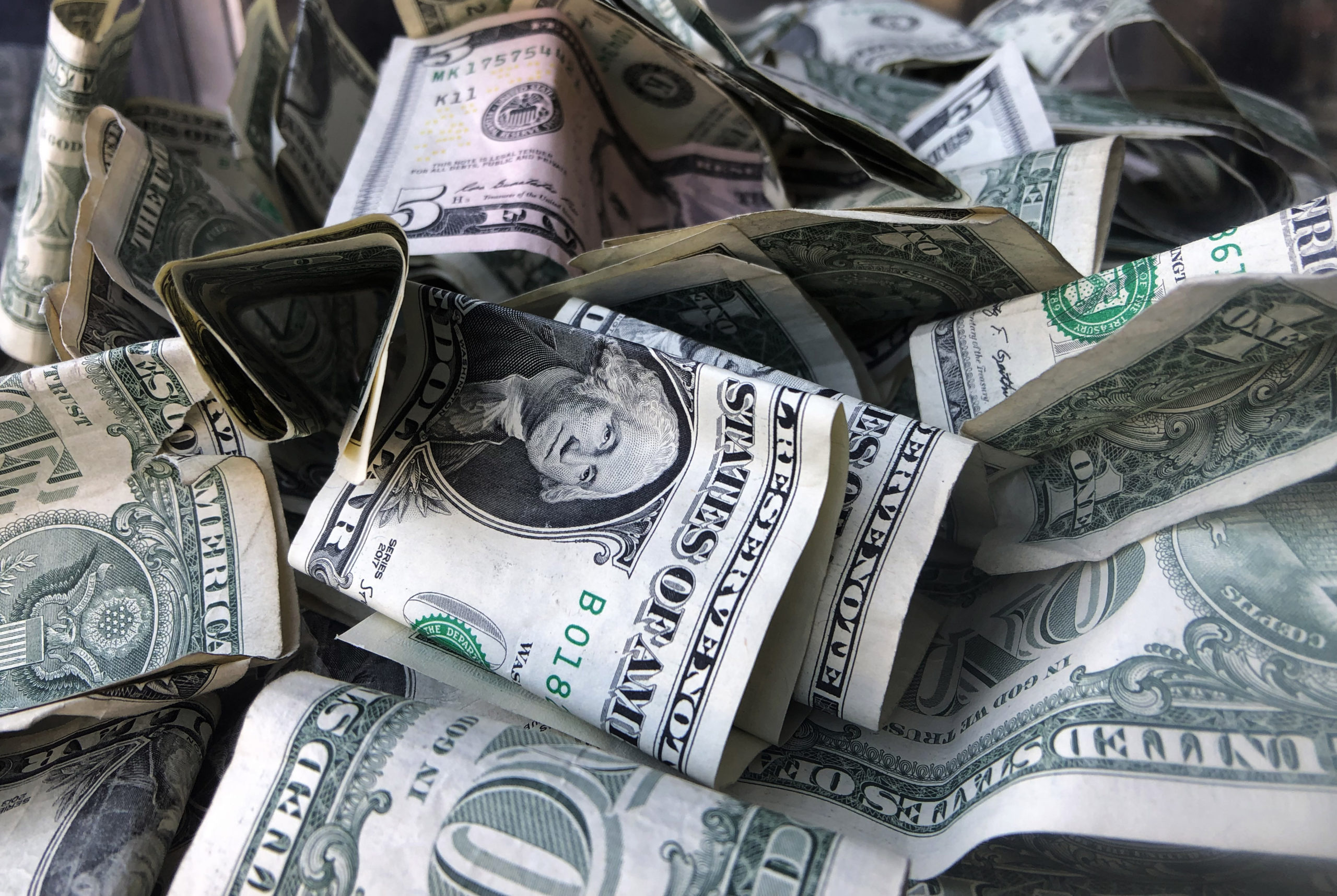Filthy lucre: Paper money shunned for fear of virus spread

This Wednesday, April 3, 2019, file photo shows a box filled with dollar bills, in New York. A growing number of businesses and individuals worldwide have stopped using banknotes in fear that physical currency, handled by tens of thousands of people over their useful life, could be a vector for the spreading coronavirus.(AP Photo/Mark Lennihan, File)
NEW YORK — In a world suffering a pandemic, cash is no longer king.
A growing number of businesses and individuals worldwide have stopped using banknotes in fear that physical currency, handled by tens of thousands of people over their useful life, could be a vector for the spreading coronavirus.
Public officials and health experts have said that the risk of transferring the virus person-to-person through the use of banknotes is small. But that has not stopped businesses from refusing to accept the currency and some countries from urging their citizens to stop using banknotes altogether.
Open Books, a non-profit bookstore in Chicago, sent an email to customers last week asking individuals not to use cash. A chain of diners in Washington State has also stopped accepting cash. And delivery services like Grubhub, Door Dash, and others have instituted “no contact” deliveries, and have either stopped offering cash as a payment option or are actively discouraging it.
Experts said cash does carry a risk of transmitting the virus, but the risk from cash so far is small compared with other transmission routes. A scientific paper published early in the outbreak found the virus can live on cardboard for up to 24 hours and up to three days on plastic and stainless steel. The researchers, however, did not test whether it can live on banknote paper.
The presence of live virus particles on banknotes does not mean they are a health hazard, public health experts said. Virus particles are unlikely to return to the air or aerosolize, once on a surface.
“It’s not impossible that there might be traces of virus on dollar bills but if you wash your hands it should provide adequate protection, you shouldn’t need anything else,” said Julie Fischer, a professor at the Center for Global Health Science and Society at Georgetown University, on C-SPAN.
Other devices used to pay for items are just as likely to be vectors for disease transfer. Credit and debit cards are made of plastic and metal. ATMs are touched by hundreds of human hands a day. And there have been studies that show smartphones are heavily contaminated with bacteria because of their constant use.
Even the Federal Reserve has taken efforts to make sure the money supply is not contaminated. Banknotes that circulated in Europe and Asia are being quarantined for seven to 10 days as a “precautionary measure,” according to a Federal Reserve spokesperson.
While businesses are discouraging cash usage, there have been reports of customers making large withdrawals from ATMs in several parts of the country. Some banks have had to order additional cash from the Fed or keep ATMs stocked at higher levels to allow larger customer withdrawals.
Banknote avoidance is not just happening in the U.S. In South Korea, which has been more successful in stemming the outbreak, the country’s central bank took all banknotes out of circulation for two weeks or, in some cases, burned paper money.
Iran is suffering the worst outbreak of the virus in the Middle East. Using cash there is common, but in recent weeks many people have avoided it and banks have announced that they will not accept cash from customers. Iranians often have multiple debit cards but cash is widely used in small-scale transactions, like buying bread in bakeries or leaving a tip. Many people have started even being careful in how they hand over debit cards, as contactless payment methods haven’t caught on there.
For more news about the novel coronavirus click here.
What you need to know about Coronavirus.
For more information on COVID-19, call the DOH Hotline: (02) 86517800 local 1149/1150.
The Inquirer Foundation supports our healthcare frontliners and is still accepting cash donations to be deposited at Banco de Oro (BDO) current account #007960018860 or donate through PayMaya using this link.